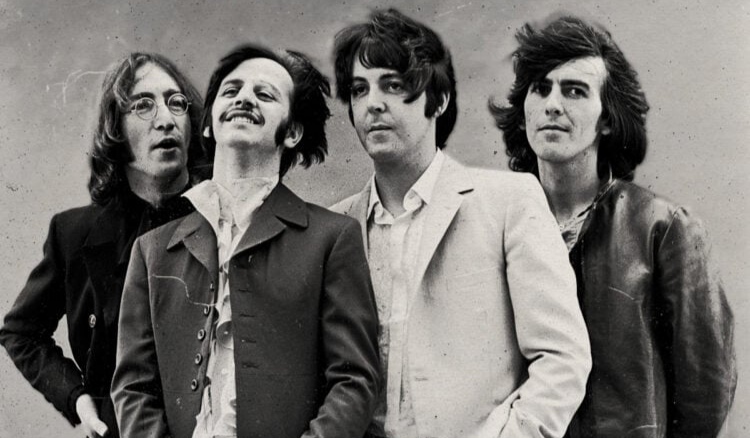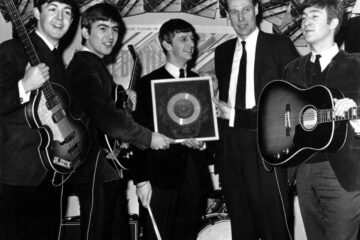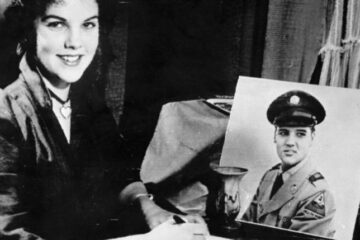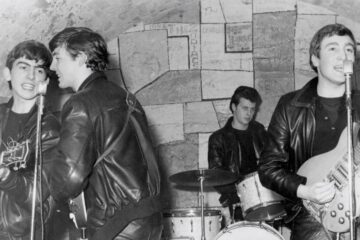In the 1960s, Bob Dylan was writing so many classic songs that he was struggling to keep track of them. He was literally losing them down the cracks of sofas, under the web, and drunkenly dropping them in the same idle way that a single glove always goes missing. Joan Baez found ‘Love Is Just a Four Letter Word’ down the back of his piano, and when he came into the room to hear her playing it months later, he remarked on how lovely her new song was, she exclaimed, “You wrote it you dope!”
Baez was far from the only benefactor, too. He gave away tracks to The Byrds, Ronnie Wood, Nico and even Elvis Presley. In fact, the original vagabond was so utterly prolific during that era and in an array of different styles that a rumour was soon spawned that he sold his soul to the devil. This is a rumour he has gleefully tapped into ever since with a wry smile, quipping that he’s still touring and making music because he’s holding up his “end of the bargain”. Credence may be given to this theory through the fact that surely offering up a song to The Beatles – a band with 21 number ones – is surely inhuman.
Indirectly, he was certainly an influence on the band. In The Beatles Anthology, John Lennon is quoted as saying: “In Paris in 1964 was the first time I ever heard Dylan at all. Paul got the record [The Freewheelin’ Bob Dylan] from a French DJ. For three weeks in Paris, we didn’t stop playing it. We all went potty about Dylan.” There is no doubt that after this period, the songs that the Fab Four were crafting became more complex, lyrically more probing and literary, and their outlook was more outwardly politically liberal.
When the band met their hero later that year, Paul McCartney mused: “I could feel myself climbing a spiral walkway as I was talking to Dylan. I felt like I was figuring it all out, the meaning of life.” Meanwhile, Dylan hid the influence they inflicted upon him, telling biographer Anthony Scaduto, “I just kept it to myself that I really dug them.” But did he once break this reticence and offer them a song?
Well, in the background of the Let It Be sessions, you can hear the folk star’s best friend in The Beatles, George Harrison, mutter, “Here’s one Dylan wrote for Ringo” before strumming out ‘Maureen’, a track named after the drummer’s then-wife. In 1968, Dylan had been writing alongside Harrison and offered him ‘I’d Have You Anytime’ and ‘Nowhere To Go’, so this likely completed the trilogy of tracks that the freewheelin’ troubador passed up for free.
However, none of this can be corroborated beyond the various utterances from Harrison in the session recordings, and it is indeed possible that Harrison simply didn’t want to say, ‘This is one I wrote about your wife Ringo mate, because at this stage I am, in fact, already having an affair with her, or at least I soon plan to’. Countering this rather controversial origin is the distinctly Dylan-esque approach to the song with its off-kilter rhythm reminiscent of his guitar style. In the same sessions, Harrison shared a few confirmed Dylan rarities with the band, ‘Please Mrs Henry’ and ‘Get Your Rocks Off’, that they would strum out as warm-ups for the sessions.
Aside from the lack of concrete evidence, the story highlights the relationship between Dylan and Harrison and how their jams precipitated an influence on each other’s work in that period. Perhaps even acknowledging the inspiring impact of Harrison coaxed Dylan back into the realm of music after his hiatus.
As Dylan told Rolling Stone. “George had an uncanny ability to just play chords that didn’t seem to be connected in any kind of way and come up with a melody and a song. I don’t know anybody else who could do that, either. What can I tell you? He was from that old line of playing where every note was a note to be counted.”
The period when the pair began seeing each other was a pivotal one for both. Harrison was hoping that his bandmates would begin recognising his songwriting chops enough to grab some space on an album. Meanwhile, Dylan was growing weary of those demanding that his music retain a political edge, so he vowed to go down a different spiritual route. It is easy to see how both benefited from each other in their respective pursuits there.
As for ‘Maureen’, the song remains a mysterious relic from a period akin to a modern cultural renaissance whereby ideas and influence were flowing so freely in artistic revolt that sharing songs, stealing songs, hooking up, jamming, and songs slipping into obscurity as a symptom of prolificness was commonplace, especially among the two titans of the time.
Liberating ideas was central to this. As the filmmaker Jim Jarmusch once said, “Nothing is original. Steal from anywhere that resonates with inspiration or fuels your imagination.” This is a sentiment that has also been further by Nick Cave on his Red Hand Files Forum: “The great beauty of contemporary music, and what gives it its edge and vitality, is its devil-may-care attitude toward appropriation — everybody is grabbing stuff from everybody else, all the time. It’s a feeding frenzy of borrowed ideas that goes toward the advancement of rock music — the great artistic experiment of our era.”




